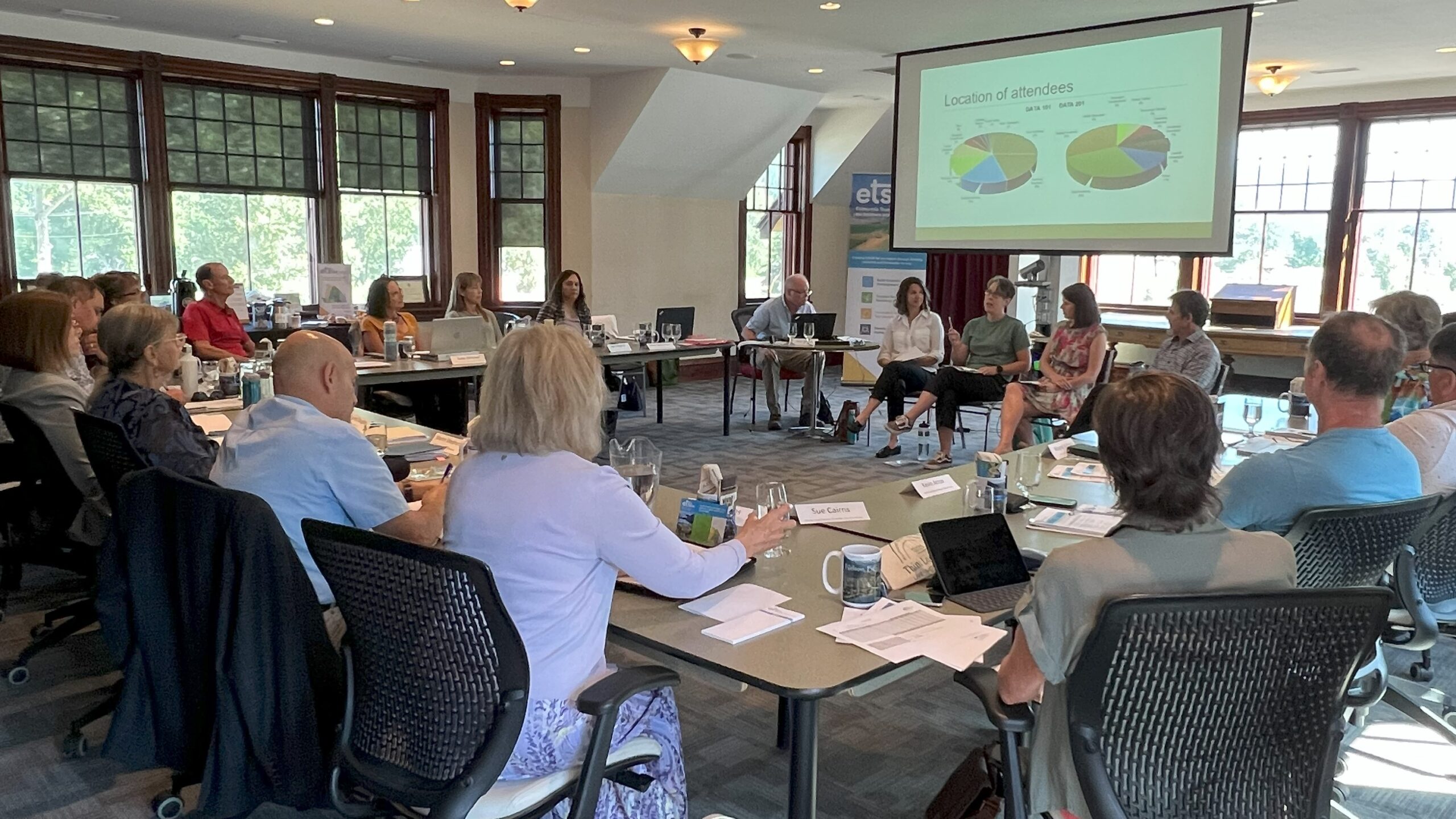Lessons from the Kootenay Region of BC
The economic landscape in the Kootenay region of BC is vibrant and proactive, thanks to the dedication and partnerships of a vibrant group of key stakeholders, which ETSI-BC, the Economic Trust of the Southern Interior, has been able to support and learn from.
As a regional economic trust, ETSI-BC helps communities in the Southern Interior of BC to realize their economic development aspirations, providing funding, resources and knowledge. The Board of ETSI-BC held one of its quarterly board meetings in Nelson BC in June 2023, and hosted a roundtable of local economic development practitioners from the region which produced valuable insights for rural economic development practitioners throughout Canada and beyond.
The BC Southern Interior and the Kootenay Region
The BC Southern Interior is a large region of just over 150 sq km, roughly the size of Ireland and Scotland combined, with a total population of just under 760,000. It spans numerous mountain ranges, grasslands, desert and numerous forest zones, including cedar, hemlock, pine and fir, with agricultural products including tree fruits, grapes, field/greenhouse vegetables as well as dairy and meat. Other key industries include tourism, construction, manufacturing, forestry, mining, tech and professional services.
The Kootenays, in the southeastern portion of the BC Southern Interior, features the highest mountain ranges and the narrowest valley bottoms in the region. The two cities are Nelson and Cranbrook, both of which have fewer than 20,000 in their trading areas. With a long mining history, the region has faced several ‘boom and bust’ times, with numerous ghost towns to be found. The total Kootenay population is just under 150,000 residents, but there are 24 incorporated municipalities and many rural residents in its approximately 80,000 square kilometres.
Economic Development Initiatives and Lessons
The Columbia-Kootenay- Boundary portion of the ETSI-BC service area faces many of the same issues that rural economic development practitioners grapple with daily: workforce housing, regional transportation, digital connectivity, labour shortages, alignment of skills with employer needs.
Given its role helping communities achieve their economic development aspirations, the Board of ETSI-BC hoped to learn about the unique aspects of this part of its service area, and the impact their funding has had in catalysing progress. While the initiatives described were diverse, they all demonstrated the importance of regional collaboration and partnerships to achieving economic development goals.
Lively discussion followed presentations from four of the more than 40 community organizations that are part of a thriving network of economic development practitioners in the region. This particular roundtable featured Community Futures organizations from both the East and West Kootenay, Selkirk College, and the Nelson and District Chamber of Commerce.
The key takeaway from the roundtable was the importance of collaboration and partnerships to the region’s ability to foster resilient communities, develop the needed skills and address labour shortages.
“Small rural communities such as those in the Kootenays often don’t have the capacity to run projects on their own,” said Andrea Wilkey, Executive Director of Community Futures Central Kootenay (CFCK). “The sharing of information and resources with other organizations and stakeholders is essential to their success.”
Fostering Resilient Communities
ETSI-BC has provided funding to numerous business support organizations, local governments, and Indigenous organizations to deliver the Rural Business and Community Recovery Program (RBCR) in the East and West Kootenays. The program enabled 36 Business Recovery Advisors to be engaged by communities and business support organizations to help rural communities impacted by the COVID pandemic, and events such as flooding and fires. The Advisors worked with 13 Chambers of Commerce, five Community Futures organizations and two industry groups to provide timely supports to businesses in their communities, from referrals and research data to the development of marketing and e-commerce strategies.
Darren Davidson worked as a Business Recovery Advisor with the Nelson & Area Economic Development Partnership (NAEDP), a collaboration between CFCK, the Nelson & District Chamber of Commerce, the City of Nelson, Regional District of Central Kootenay and Electoral Areas E and F. The NAEPD was formed to ensure community economic development projects in and around Nelson are pursued jointly, efficiently and without duplication.
Outcomes inspired by the NAEPD’s work such as Buy Local campaigns have helped reduce economic and pandemic-related impacts for many Kootenay businesses. The NAEPD also informs business continuity plans, emergency preparedness and insurance needs. “NAEPD members come together in a completely non-competitive environment to determine the best approaches to common issues,” said Wilkey.
Building Economic Development Skills and Insight
Robyn Peel, Community Economic Development Coordinator for Community Futures East Kootenay (CFEK) described the two popular Using Data to Your Advantage webinar series, delivered by CFEK on behalf of ETSI-BC. The series provided the opportunity for people working in economic development in smaller communities to learn from other practitioners how to use data for community decision-making.
This initiative of ETSI-BC brought together a community of practice by highlighting examples from around the Southern Interior of how data could help drive economic and tourism strategies. More than 500 participants from all corners of the Southern Interior have taken advantage of this learning tool to support planning in their communities.
“The region’s food and beverage industry was hit hard during COVID, said Tom Thompson, Executive Director of the Nelson Chamber of Commerce. “The Chamber used the data series to understand what was happening in the sector and to provide a framework for supporting local businesses.”
Aligning Sector Development with Workplace Skills
With six campuses in southeastern BC, Selkirk College is demonstrating how post-secondary institutions can partner with industry to strengthen specific sectors and help students develop specialized workplace skills. Selkirk Innovates, the research arm of the College, partners with the Kootenay Association for Science and Technology (KAST) to do this within the technology sector.
Outcomes from this dynamic partnership include research into climate change, housing and other social issues, noted Dr. Sarah Breen, the BC Regional Innovation Chair in Rural Economic Development, based at Selkirk. Students have also helped in the development and testing of equipment prototypes, technology solutions around drones and heat mapping, and a series of advanced computer courses. In addition, a two-year Regional Technology Profile was created that identifies challenges to growing the sector, and ways to address them.
“There is a movement to bring more universities and colleges together on regional economic development initiatives like this,” said Dr. Phil Barker, Vice-Principal, Research and Innovation at the University of British Columbia’s Okanagan campus. “UBCO is looking at how we can support this.”
Labour Shortage Solutions
A shortage of skilled workers is a barrier to growth for businesses and communities throughout BC and Canada. The Rural & Northern Immigration Pilot was featured at the roundtable as an important resource to help Kootenay employers find the workers they need.
Community Futures Central Kootenay was one of 11 communities in Canada selected to deliver this RNIP pilot program through a partnership between with the Federal Government launched in 2020. ETSI-BC helped support its continuation. With most new immigrants to Canada moving to its major cities, the fact that over 142 employers have been assisted in recruiting 300 employees to achieve Permanent Residency in the region is quite an accomplishment. The program has also supported 210 spouses and children who often go on to fill other jobs in their communities and invest in local businesses.
Conclusion
The roundtable discussion inspired an open sharing of best practices that other communities could adapt to their economic development strategies. New opportunities for collaboration and partnering were also discussed, such as how to better work with Indigenous communities.
“The pride our stakeholders have in these projects to grow their communities is evident throughout the Southern Interior,” says Laurel Douglas, Executive Director for ETSI-BC. “Sharing these insights also provides our governing board of directors with a clear vision about the important role ETSI-BC plays in the region.”


